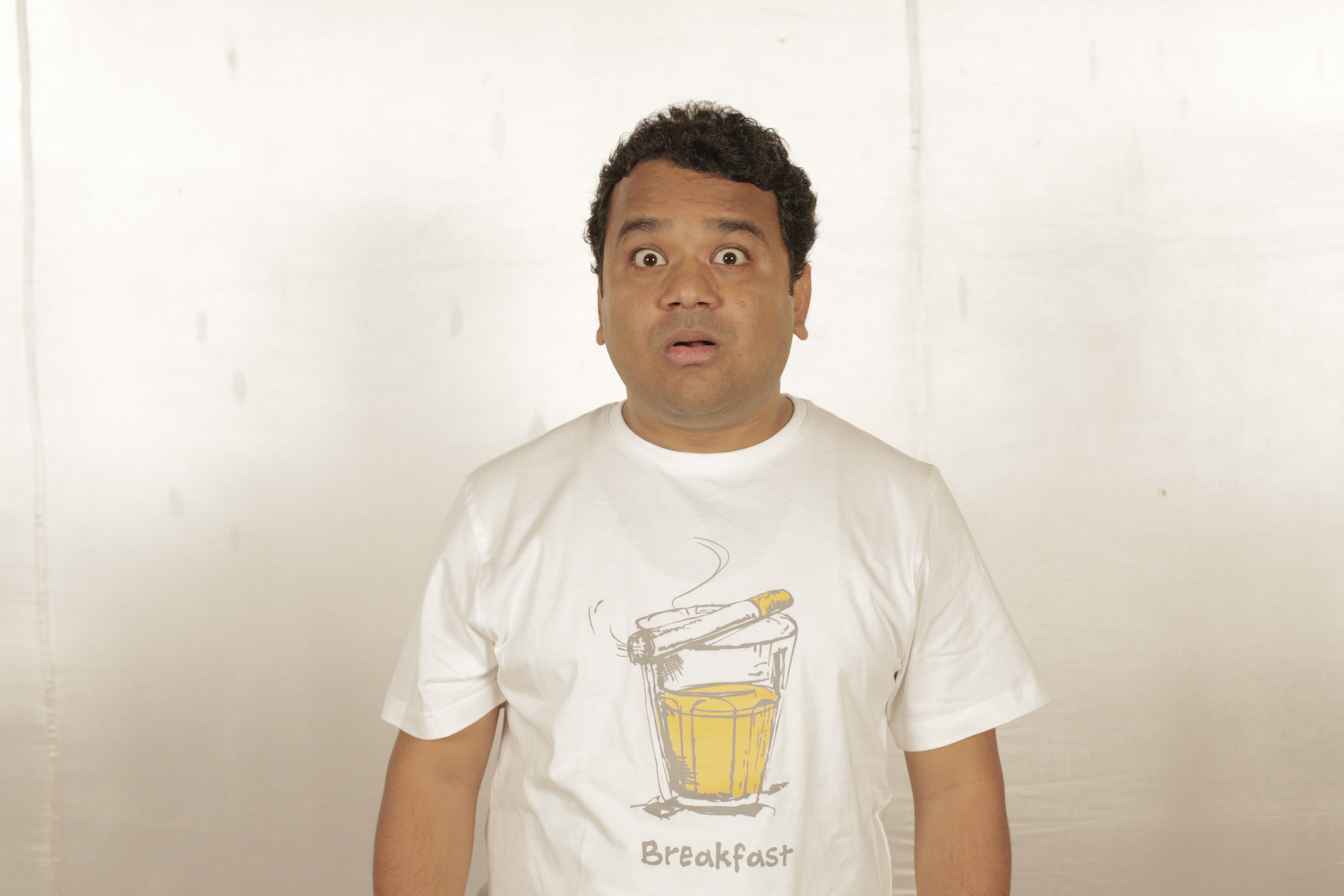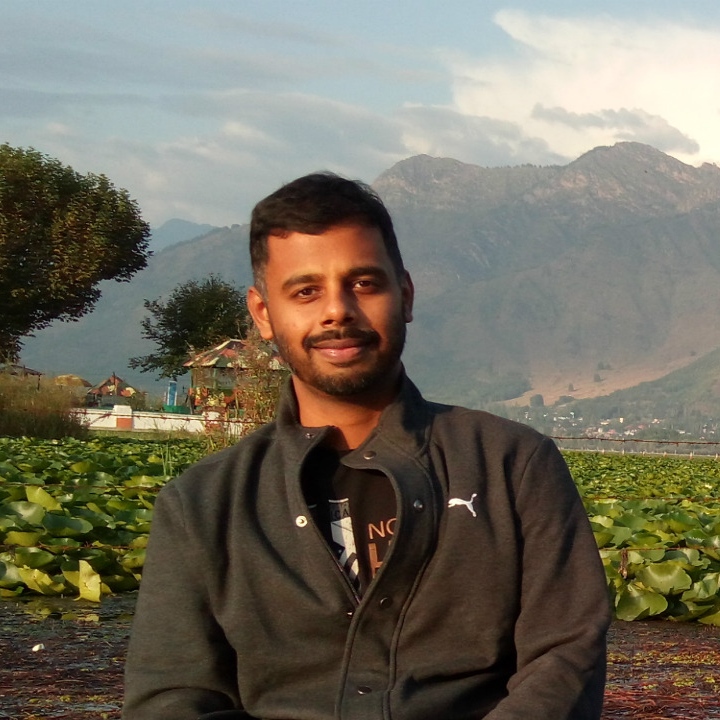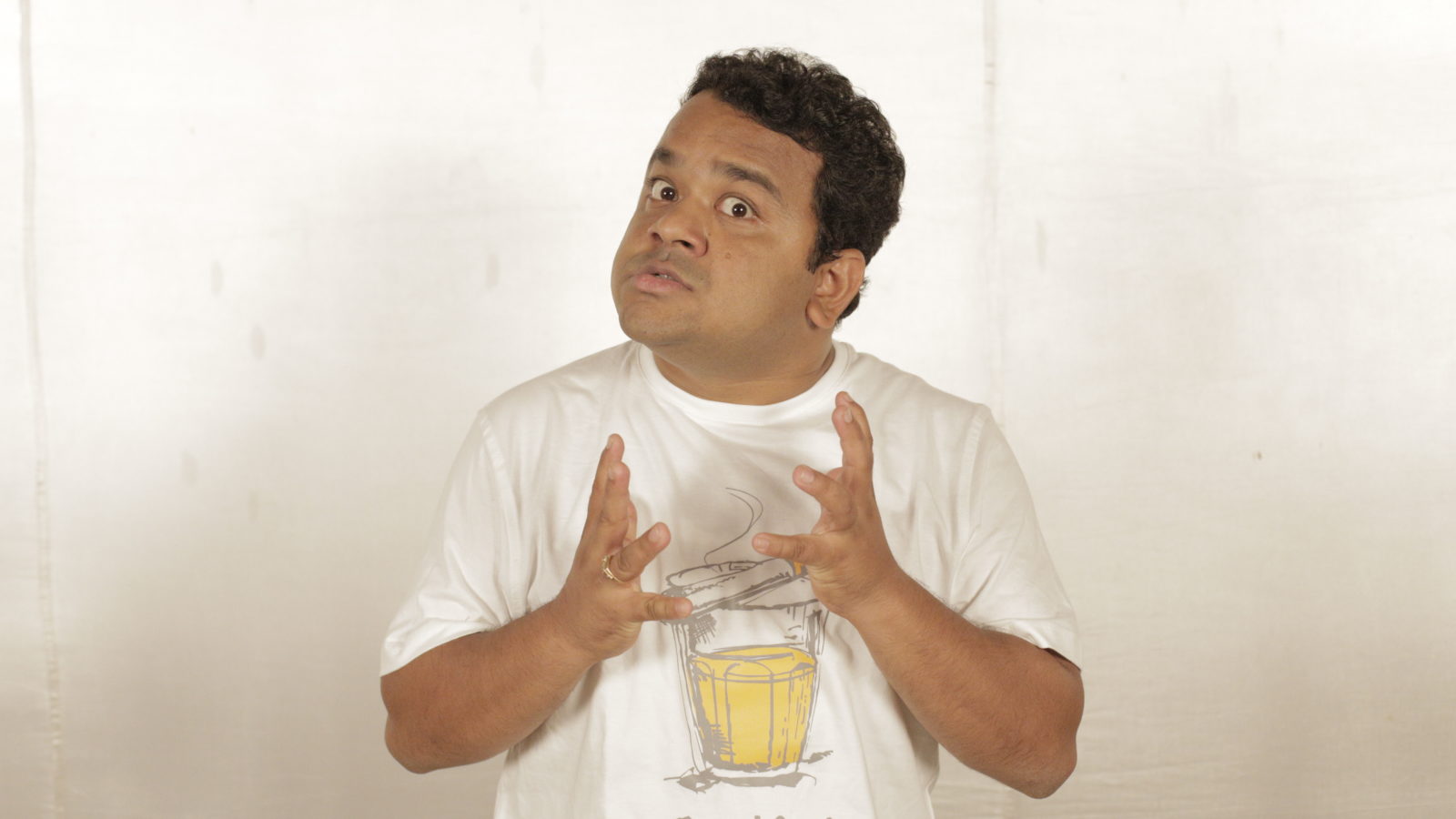For someone who grew up taking competitive exams and worked in a series of well-paying corporate jobs, comedian-actor Kumar Varun says he’s never believed in the rat race.
An engineer and MBA who aced the CAT exam with an eye-watering percentile, Kumar Varun worked at TCS, Mahindra and DBS Bank for over six years. In fact, he’s a relative newbie on the stand-up and web-series scene, having turned to full-time comedy and acting only in 2017—two years after his team, Random Chikibum, won OML’s Comedy Hunt, which aimed to find India’s best online comedic talent.
The win opened up enormous opportunities for Varun, and his teammates, including fellow comedian Rahul Subramanian. But having worked so hard to get to where he was, Varun was conflicted about quitting his well-paying job to focus on comedy. It took him a while to process that comedy would only become rewarding enough if he committed to it full-time. And so he plunged headlong into India’s exploding comedy and OTT scene.
However, despite the pressures of making it big as a performer, Varun doesn’t believe in either competition or comparison. He isn’t obsessed with going viral on the Internet or doing a 20-city tour. All that matters for his peace of mind, he tells Thrive Global India, is to focus on doing his job and living a wholesome life. Here are some edited excerpts from the interview:
Thrive Global India: Your stand-up comedy and web-series work often focuses on engineering and MBA life, and middle-class people in the workplace. How much of this is drawn from your own life or experiences?
Kumar Varun: My background plays a huge role in my choice of topics. I’ve always wanted to talk about my own experiences. That will invariably change when I grow more as a writer and as a performer. Maybe at a later stage, I will start talking about things that have nothing to do with me per se—whether its politics or something else. Right now, since I am at an early stage in my comedy career, I focus on the life I’ve lived and things I’ve gone through. That’s why, in my very first stand-up act, I talked about my B-school life. The next video, which released last year, was about engineering college. Similarly, if you see some of the sketches that Rahul [Subramanian] and I have made for Random Chikibum, they derive a lot from the experiences and things we saw while working in corporate life.
TGI: In school and college, you won regularly at oratory and debate competitions. Did that help you deal with the spotlight when you became a performer?
KV: Oh yes. Though I was never part of theatre or any dramatics groups in school or college, I was very enthusiastic when it came to debates, quizzing or any oratory event like Shipwrecks or Mock Press [Conferences]. I was always on stage doing something or the other. I would host events like the Republic Day or Annual Day or Farewell for college seniors. In B-school, too, I was the cultural secretary.
Spending a large part of my early life on stage definitely made me comfortable in this new setup of stand-up comedy. I’ve never had stage fright, even if I’m performing in an open stadium where there are thousands of people watching. I might be nervous about the content of my speech, but never about public speaking per se. I am comfortable with the attention.
TGI: It was a B-school competition at Mahindra that started your comedy career. What was that like?
KV: So at MBA school, I used to do fun things on stage (not necessarily stand-up comedy) about different teams and the things that happen at a B school, about different societies and clubs and different kinds of people. And a lot of people knew that about me. So when there was a B-school competition at Mahindra, the HR asked me to host it. And that’s how Rahul heard about me and then one thing led to another. So yeah, in that sense, that was the starting point of my association with comedy.
And even though there were senior people from Mahindra in the crowd, there was no pressure or anything. I was very used to being funny or speaking my mind. I just thought, I’m just going to go and joke about other B-schools which are present on stage. And they were very basic jokes when I look back at them. But they were still fun to do. Till date, B schools are my favorite place to perform comedy because I feel completely at home when I’m there. I know that world and it takes me back to that time.
TGI: What was your team’s strategy to win OML’s Comedy Hunt 2015, especially given your team’s lack of experience?
KV: It’s not that none of us had done any comedy at the time. Rahul had started doing open mikes in Mumbai, but yeah, he wasn’t very experienced then either.
The challenge with Comedy Hunt was that Rahul and I had no idea of how to convert our random thoughts into a proper sketch. And that’s where our friends Sunny and Abhinay were a huge help. Sunny helped us with direction and shooting. And Abhinay helped us with sound and edits. The second challenge was that all four of us had full-time jobs and Comedy Hunt had very tight deadlines. So the time crunch was a huge, huge challenge.
Apart from that we didn’t have a strategy per se. Our approach was, and still is, that anything that’s funny to both Rahul and me is, going to be what we eventually write and make. Till date we’ve never sought validation from anyone else. And with Comedy Hunt, the advantage we had was that while our competitors were remarkably better than us in terms of production, scale and edits, our comedy was better. We just relied on jokes and our experiences and our writing. In retrospect, I think that is what swung things in our favour.

TGI: Was it easy to transition full-time into comedy, leaving behind years of academic effort and stable jobs? Did you have a backup plan?
KV: The decision was really difficult. It had taken years of academic effort to finally get jobs at very good companies with very good salary. But then, after Comedy Hunt, Rahul and I started getting work, one thing led to another, and AIB happened. Then I did a web series and a few TVCs and moved to stand-up. Rahul quit his job and we kept discussing as to when I was quitting. As a full-time employee, you think you will quit when your so-called passion/hobby starts paying you as much as you’re earning right now, or close to that. And then you realise that it’ll start paying only if you commit enough time to this. So it becomes a very weird, vicious cycle. And that happened to me for months. Then I finally took a call to do this full-time and see how it works out. Thankfully I had a very supporting management at my work, my boss, my super-boss, were very supportive.
I’ve never had a backup plan in terms of my career. I’ve always gone with the flow and I’ve always been very confident over what I’m doing and my skillset. But I had a backup plan in terms of finances. So I spent months planning my financials and preparing for a rainy day
And this is what I always tell people whenever they ask me about transitioning, that you need to make pragmatic plans when you quit your job. I personally think it shouldn’t be an overnight thing. There has to be some effort into how you’re going to sustain when there is no work, because comedy (and freelancing in general) is very dynamic.
TGI: You’ve said you’ve always been good at planning and preparing for things like exams. Does that matter when you’re writing jokes? Is comedy (or acting) a ‘structured’, technical process or is it entirely creative and gut feel-driven?
KV: Yeah, I pride myself in terms of my ability to plan and prepare for things. Like I know what I’ll be doing or whom I’ll be meeting a week from now. But surprisingly, that has never been part of my academic or work life. Even now, in comedy, I don’t have a schedule or structure for writing jokes or anything. I don’t know if my approach is traditional or gut-driven or natural. But I just have a few things that I want to talk about, and I go on stage and I talk about things. Only one out of four times do I make notes before shows. Similarly, I’ve never studied comedians or the rules of comedy like flips or misdirections or callbacks. I don’t know these things. That’s why I love things like crowd work shows, where there’s no planning, where I just go and talk to people, and I enjoy doing that much more than a traditional stand-up act.
It’s the same with acting. I’ve never learnt it, though I’m envious of people who’ve studied it formally. Whenever I am given a character, I just think of someone in my life who was similar to the one I’m playing. And I just take that reference in my mind and perform in front of the camera. I don’t know if I would have been better or worse if I had formally studied the tricks and methods of acting. As of now, it’s just about going with the flow on stage.
TGI: On a related note, what are some things you learnt about the comedy and acting profession (people, clients, partnerships) after you got into it?
KV: Like any other job, every day is a learning experience. In live shows, you learn the differences between corporate audiences and the college crowd. You learn how to schedule the show, about sound and light setups. For example, if it’s a corporate show, and drinks and food are being served while you’re performing, the show is not going to work. So you need to check about that beforehand. If it’s a college show, you see what kind of college and what works for them. And with acting, you have to gauge the director, the script, etc. Its basically ‘stakeholder management’, which we learnt in B-school.
You also have to set your expectations according to the type of work: whether it is a normal Youtube sketch, a big web series, some brand work, or a piece to camera. Each comes with its own people and expectations, and with experience you learn how much to agree and disagree with, which battles to fight and which ones are not worth the effort, etc.
TGI: Is there pressure to stay ahead of the competition or ‘cultivate a niche’? How do you deal with the pressures that come with the work?
KV: This might sound very bookish, but it’s true. I am not at all competitive. In two years of B school, I never participated in corporate competitions or vied for placements. Similarly, when I started comedy, I never looked at what others were up to. I was just focused on doing my job. That’s how it has been from the start, and it has always worked well for my mental peace, for my mental health. At some level, I’ve made a conscious effort to avoid things that others are doing. I don’t do many open mics, so I don’t necessarily hang out with comedians every day. I don’t think ‘this is a topic everyone’s talking about, so let me also do it’. So these are the few filters I have in my career, which I’m very happy with.
Maybe it comes with age and life experience. I am always focused on how to make a more wholesome life than to be No.1 in comedy or whatever. I don’t think ‘Oh god, I need a special tomorrow’ or that I have to be a viral comedian or whatever. And I’ve rarely spoken to my managers and said: ‘Why are there no shows this month?’ Or I’ve never gone to people and said, ‘Hey, can I do this acting gig?’
I keep performing, and then I come back home and just chill. And I am very happy with how it has all shaped out. Recently someone asked me my plans for 2020. And I said ‘I want to learn to play the keyboard, to learn swimming and cooking, to focus on my health, travel, read more, etc.’ And the other person said: ‘I actually meant about your career’! But I don’t have any plans to do a stand-up tour abroad or have 20 cities on the poster. My life goals are to travel for myself, to visit restaurants and explore new places. I know a little work is coming, which will pay my bills and will satiate my needs and wants in life, which are not much. So yeah, there’s no pressure to stay ahead of the competition.
TGI: Now that you’ve been working full-time in comedy for around 3 years, have your goals for life and work changed at all? What’s next for you?
KV: Oh, definitely. Everything has changed, including my life goals. In a corporate setup, you have a linear growth path. But in a creative life, that doesn’t exist. So now I am more focused on what I can do with the opportunity I have, as a comedian and actor. For example, I started a show called ‘Quizzing with the Comedians’, which combines two of my loves: comedy and quizzing. I’d love to create fiction shows as well. In fact, I’ve always been a bigger fan of films and fiction than stand-up. Then, I’ve always wanted to work with great people, and this new life has introduced me to so many great comedians and writers and creative people in general. So, most of my life goals involve working with them as well.
Over the last 2-3 years, I’ve travelled a lot. This year too, I want to travel with my friends and loved ones. Then I may learn a new language, a new musical instrument, read more, listen more. Honestly, all this is happening because there’s a lot of time (laughs) and a lot of flexibility in how to use that time.
Besides ‘Quizzing with Comedians’, there is my show called Small Talk, which is a crowd-work show, where I just talk to people. And then, of course, more stand-up will continue happening. In terms of acting, I have a web series releasing soon on a major OTT platform. And then I’m going to shoot for Chacha Vidhayak Hain Humare Season 2. Then there are a few projects in pipeline, so fingers crossed on all that. Over the next year or so, I hope I’ll have a new fiction show, which will be created by me. That’s very exciting as well.


